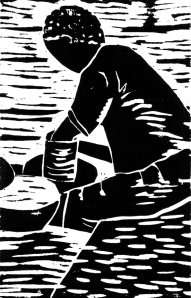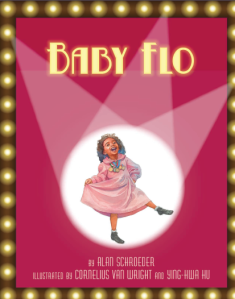 April is National Poetry Month, and we’re celebrating by asking some of our own Lee & Low poets to share their favorite poems with us. Today, poet and
April is National Poetry Month, and we’re celebrating by asking some of our own Lee & Low poets to share their favorite poems with us. Today, poet and ![]() Howard University Professor Tony Medina (I and I Bob Marley, Love to Langston, DeShawn Days) shares:
Howard University Professor Tony Medina (I and I Bob Marley, Love to Langston, DeShawn Days) shares:
A poem I keep going back to—and one I frequently share with my students—is Pablo Neruda’s “To Wash a Child.” It is the ultimate ode to what Neruda refers to as “the oldest love on the earth.” The poem is rich in nuance and specificity, bringing the seemingly mundane, daily task of bathing a child to such a heightened act of beauty, frustration and mischief.


 One of my favorite poems is by the late Karla Kuskin: “Write About a Radish…,” which begins:
One of my favorite poems is by the late Karla Kuskin: “Write About a Radish…,” which begins:

